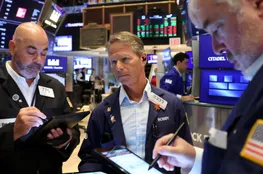Tesla hosted its 'We, Robot' event, aiming to showcase the latest in autonomous vehicles and humanoid robots. However, the event underwhelmed investors, resulting in a 10% drop in Tesla's stock over five trading days. The skepticism largely stems from the uncertain impact that the 'Cybercab' and Tesla Optimus Bots might have on Tesla's revenue stream in the near term. Elon Musk, Tesla’s CEO, came with lofty promises, including producing the futuristic Cybercab by 2026 and boosting Tesla's market cap by trillions with the Optimus Bot. Despite Musk’s enthusiastic declarations, the stock dip has left investors questioning whether now is the time to buy Tesla shares.
For over a decade, Tesla has been inching towards self-driving technology, with Musk repeatedly vowing imminent advancements. In 2019, he infamously claimed there would be a million robotaxis on the road by 2020, a promise that remains unfulfilled. At last week's event, Musk's arrival in the Cybercab and the reveal of a self-driving van prototype echoed past patterns of ambitious claims with ambiguous timelines, giving pause to potential investors. Both vehicles are positioned to rival Uber's business model by providing driverless ride-sharing services. Successfully implementing such technology could potentially revolutionize the taxi industry by reducing costs.
Alongside vehicular innovations, Tesla shone a spotlight on the Tesla Optimus Bot, a humanoid robot poised to perform various tasks. Musk sensationally estimated the bot could eventually contribute $25 trillion to Tesla's market valuation, though specifics on this valuation are vague. Such ambitious figures from Tesla often create a speculative buzz but lack immediate concrete evidence. Investors have reasons to be skeptical, given Tesla's history of postponed promises and product delays.
Tesla is undoubtedly betting heavily on artificial intelligence and autonomous technologies as part of its future growth strategy. However, the full self-driving software is yet to be independently operational, unlike competitors such as Waymo, which already operates licensed robotaxi networks. Post-event revelations that the Optimus Bots were manipulated by humans during the presentation further fuel concerns about the readiness and authenticity of Tesla's technological offerings.
Considering Tesla’s shaky projections around AI and robotics, purchasing the stock based on 'We, Robot' event hype may be premature. Despite Tesla's long-term stock performance and a 47% fall from all-time highs in late 2021, questions around the scalability and profitability of these new initiatives persist. Observing the current state of Tesla’s electric vehicle and battery-storage divisions might not bring much solace either. Increased supply and shrinking profit margins have been conspicuous, contributing to a notable decline in operating income and free cash flow, which has stagnated at $1.7 billion over the past year against its $686 billion market cap.
The 'We, Robot' event reinforces opinions that Tesla's stock is overvalued. While it's tempting to buy following the dip, especially with no immediate groundbreaking products on the horizon, the move appears speculative at best given the uncertain technological advancements and future financial outcomes. Investors may want to exercise caution and analyze other segments before committing to Tesla stock based on promises that have yet to materialize into tangible business outcomes.
























